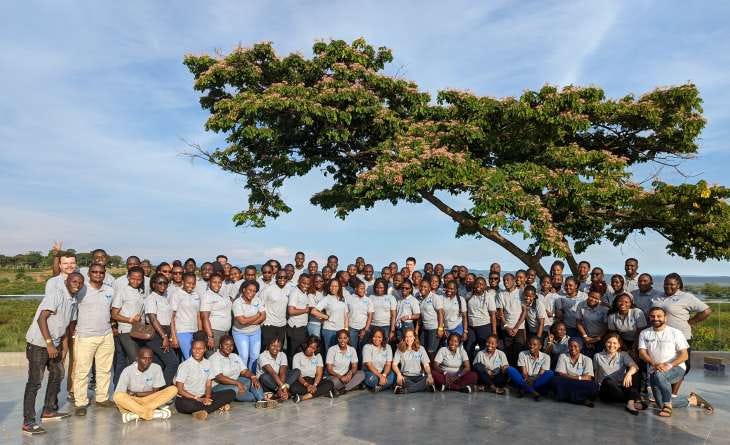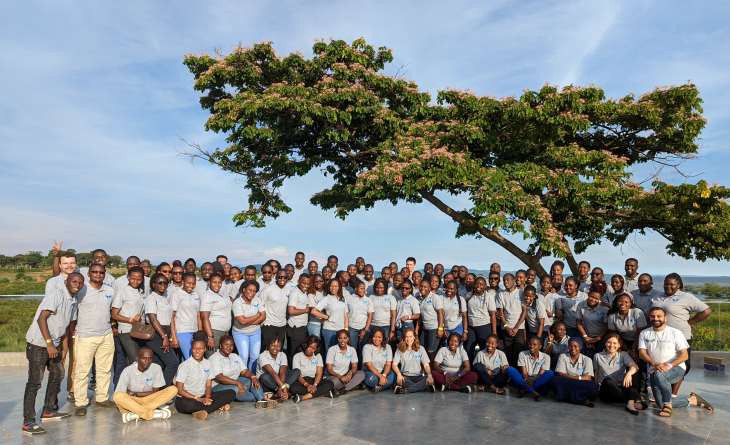Why Serena Ventures Backed Ugandan Digital Lending Startup Numida In $12.3M Pre-Series A Round
Numida, a Uganda-based fintech focused on digital lending to small businesses as part of its strategy to drive financial inclusion in emerging markets, has raised a $12.3 million pre-Series A equity-debt funding round led by Serena Ventures, with participation from Breega, 4Di Capital, Launch Africa, Soma Capital, and Y Combinator, all of which are making their first investment in Uganda. MFS Africa, an existing strategic partner, also made a follow-on investment, and Lendable Asset Management extended a $5 million loan to the business.
“I’m most excited about continuing to build and provide financial products for these micro and small business owners who have been forgotten by the traditional financial services industry even though they are hardworking and have viable businesses. There are so many of these businesses across the continent, we really do believe that we’ve proven a model in Uganda that can be Pan-African and unlock the potential of these businesses to growth and achieve great things,” Numida CEO, Mina Shahid, who co-founded the startup in 2017 with Catherine Denis and Ben Best, said.
Numida intends to use the funds to quadruple its active customer base to 40,000 within the next 18 months, a target that will be aided by its entry into two additional African markets (selected from Ghana, Nigeria, Egypt or Kenya).
Read also Here’s Why Newly Funded Ivorian Fintech Julaya Chose To Expand To Benin, Togo, And Burkina Faso
Why The Investors Invested
Since its inception, the firm has gained substantial traction. Numida has expanded over 7.5 times since collecting initial money last year, fueled by a surge in demand for rapid loans. To far, the startup has granted $20 million in operating capital to micro and small firms, increasing from $250,000 to $2 million every month. The loan value is expected to rise if the firm continues to accept debt financing from organisations such as Lendable.
Numida is also Uganda’s first business to get accepted into YC (W22).

A Look At What The Startup Does
Numida was founded in 2017 by Mina Shahid, Catherine Denis, and Ben Best, who saw an opportunity to create one of East Africa’s first digital fintechs focused on semi-formal micro and small businesses. Typically, these companies obtain loans from family, loan sharks, and unlicensed money lenders who have bad credit.
Read also Afreximbank Launches Trade Payment Services (AfPAY)
However, when the company was established, the owners had no intention of providing credit to companies. A bookkeeping tool that allowed conventional microfinance institutions (MFIs) to provide unsecured credit to semi-formal businesses was the focus of an initial pilot in 2016.
The founders anticipated that these microfinance organisations will continue to service these companies with data collected from months of bookkeeping. But they had no idea what would happen after nine months. Even though the MFIs seemed to love the data that Numida could provide, they were reluctant to change their underwriting habits, according to Shahid. As a result, they turned down all Numida customers who applied for loans across the site due to a shortage of collateral.
“So we thought among ourselves that if our mission is to unlock access to resources that these mom and pop shops need in order to grow their businesses, we’re not going to do that by partnering with these traditional MFIs; we had to do that ourselves,” he said.
After multiple revisions, the firm went live in October 2019, with the CEO claiming that lending levels had increased by 6x.
Businesses in its portfolio obtain loans ranging from $100 to $5,000, with repayment due after one month with interest rates ranging from 10% to 16%.
Read also Looking For An Investor Community In Senegal? LionsTech Invest Is The Newest In Town
Numida considers numerous characteristics of firms for credit assessment, including the industry and cash flow. Repeat clients in good standing get their loans authorised immediately, while new applications and repeat firms needing greater facilities may wait up to 24 hours.
Numida lending Numida lending
Charles Rapulu Udoh

Charles Rapulu Udoh is a Lagos-based lawyer, who has several years of experience working in Africa’s burgeoning tech startup industry. He has closed multi-million dollar deals bordering on venture capital, private equity, intellectual property (trademark, patent or design, etc.), mergers and acquisitions, in countries such as in the Delaware, New York, UK, Singapore, British Virgin Islands, South Africa, Nigeria etc. He’s also a corporate governance and cross-border data privacy and tax expert.
As an award-winning writer and researcher, he is passionate about telling the African startup story, and is one of the continent’s pioneers in this regard. You can book a session and speak with him using the link: https://insightsbyexpert



